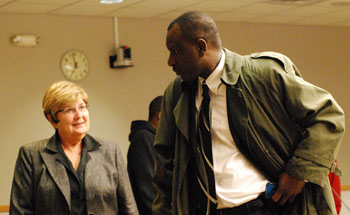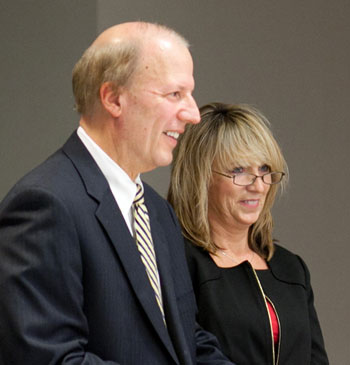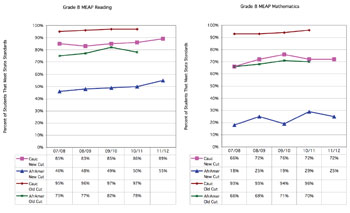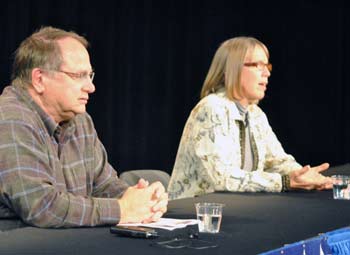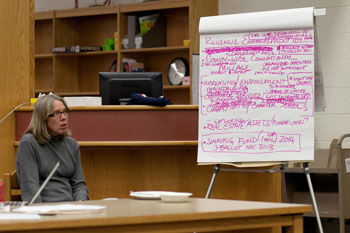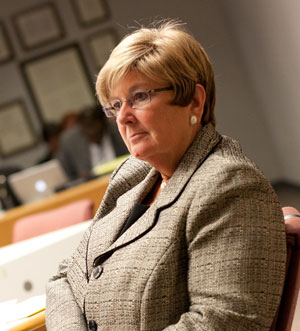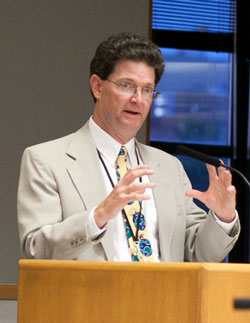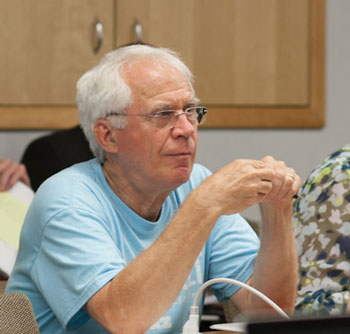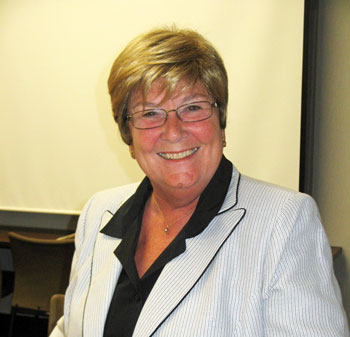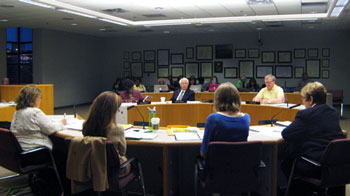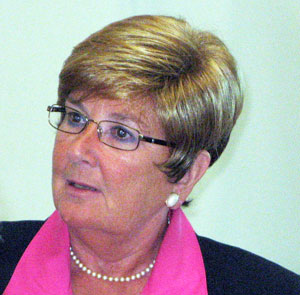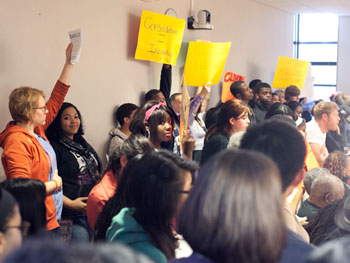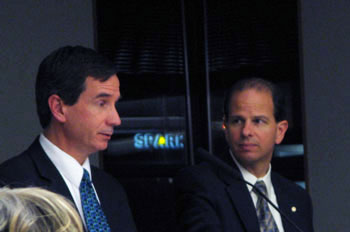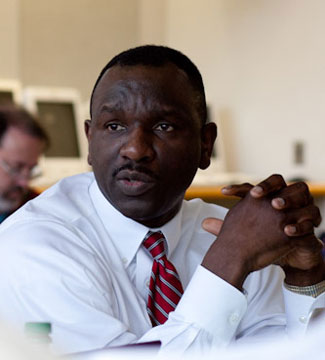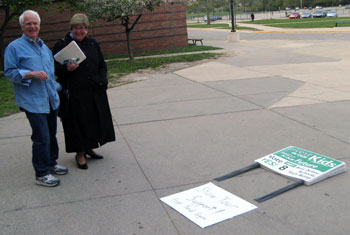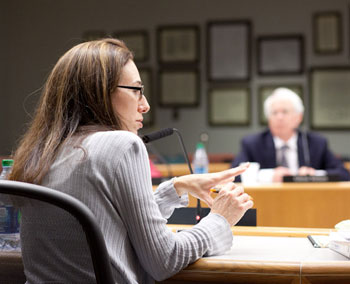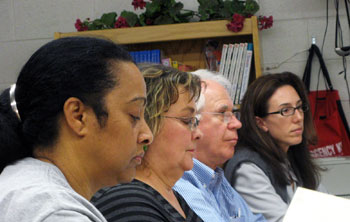Ann Arbor Public Schools board of education committee of the whole (May 16, 2012): Although they showed mixed sentiment on some issues, trustees tentatively expressed agreement on a total of $4.8 million in budget cuts, and just over $6 million in revenue enhancements.
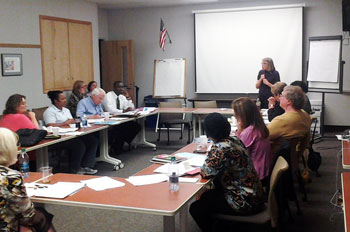
AAPS board president Deb Mexicotte led the trustees in their budget discussion at the May 16 committee meeting. The formal budget presentation from the administration will come at the May 23 meeting.
That still leaves a $7 million gap to be addressed as the district faces a $17.8 million deficit for the 2012-13 school year, which begins July 1. There was general agreement on the board to use some amount fund equity to meet the budget targets, but no agreement about how much to use. Hypothetically, the entire $17.8 million shortfall could be covered by drawing on the fund equity the district has to start FY 2013, which is $18.73 million.
But without some cuts and revenue enhancements, that fund equity would be close to just $1 million by the end of the year, which is a half percent of the district’s currently proposed expenditure budget for FY 2013 – $194 million. In addition, it would leave insufficient reserves to manage cash flow through the summer. And by the end of the following year, fund equity would be projected to be negative $23.5 million.
At the May 16 meeting, most trustees expressed support for leaving Roberto Clemente Student Development Center in place in its current form for at least another year, while evaluating the program’s educational effectiveness. Much of the board sentiment on Clemente was reflected in an exchange between trustees Simone Lightfoot and Glenn Nelson near the end of the three and half hour budget discussion. Lightfoot asserted that Clemente’s parents are “not caught up in test scores – they are just happy that their children want to go to school” and that their students are getting “some basics in place – social and mental.” Nelson responded, “I’m willing to grant that in that part of education, they are doing a good job, but for $18,000 [per-student cost], I’d like both the academic and social/emotional learning.”
The administration’s budget proposal called for the elimination of between 32 and 64 teaching positions, but trustees were in broad agreement that there should be no cuts to teaching positions, if at all possible. Nelson suggested that by hiring less-experienced new teachers to replace retiring teachers, the district would still be able to save roughly $960,000, without incurring any rise in class sizes. Trustees expressed support for that approach, which board president Deb Mexicotte dubbed the ”Nelson model.”
While trustees showed a consensus about maintaining teaching staff levels, they were divided on the issue of transportation. Lightfoot suggested a “hold harmless” approach to transportation this year – as the districts forms an administrative committee with broad stakeholder participation to develop a sustainable transportation plan. Taking almost an opposite view on transportation was trustee Christine Stead, who advocated several times during the meeting that all non-mandated busing should be cut. Based on the board discussion, busing for Ann Arbor Open will likely be preserved via a cost-neutral plan that relies primarily on common stops at the district’s five middle schools. Also likely is that the 4 p.m. middle school bus and the shuttles to and from Community High School will be cut. Some board members also indicated an interest in “phasing out” busing to the magnet programs at Skyline High School.
The board took no formal votes during their committee-of-the-whole-meeting on May 16. However the board’s consensus on various issues, convey to the AAPS administration, will inform the final budget proposal. That final proposal comes to the board for a first briefing and public hearing on May 23.
In addition to the budget discussion, the May 16 committee meeting included four and a half additional hours of discussion on: discussing gifted and talented programming in the district; outlining the superintendent evaluation review process; and creating a framework for a broad-based committee to study the sustainability of transportation in the district. [Full Story]





